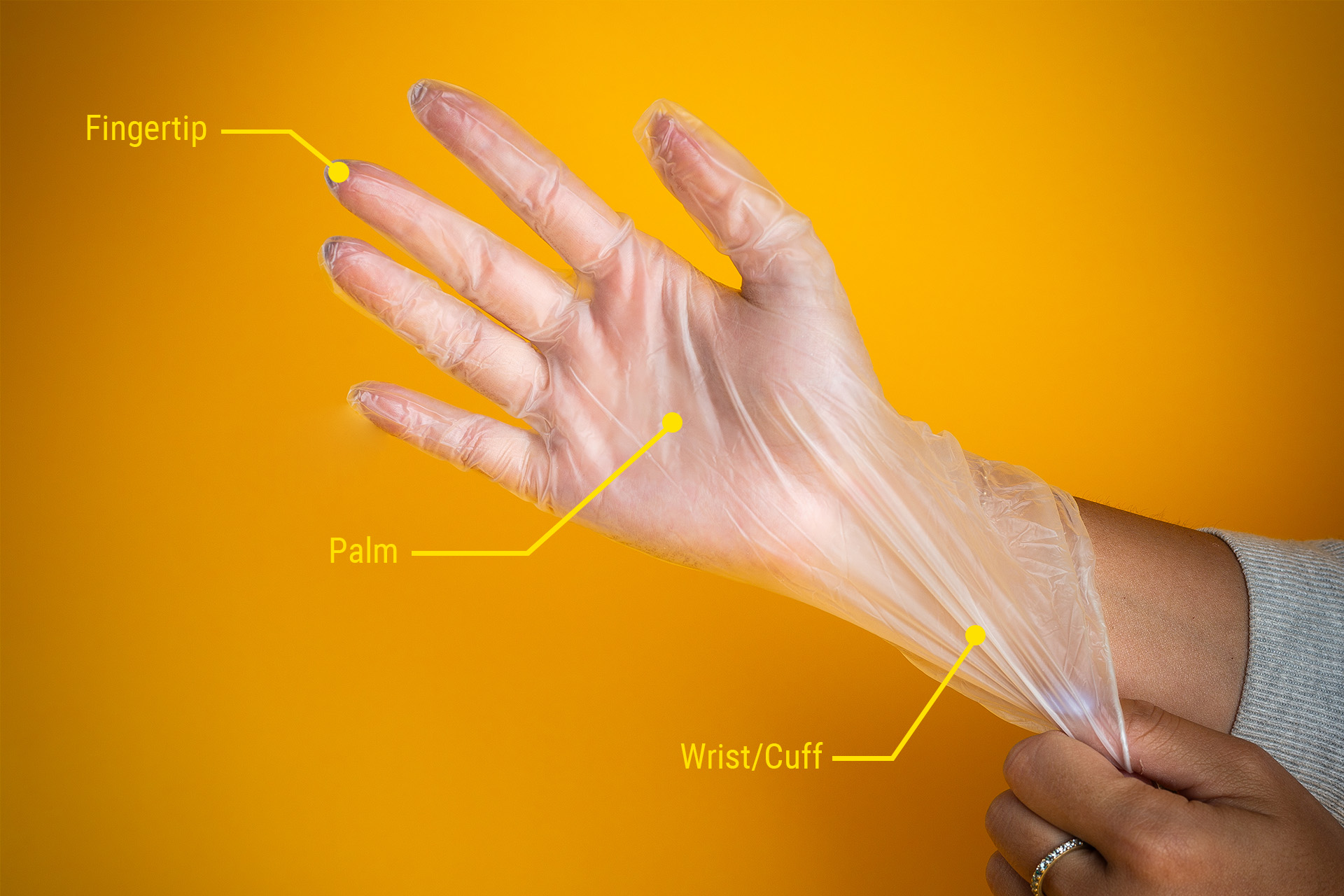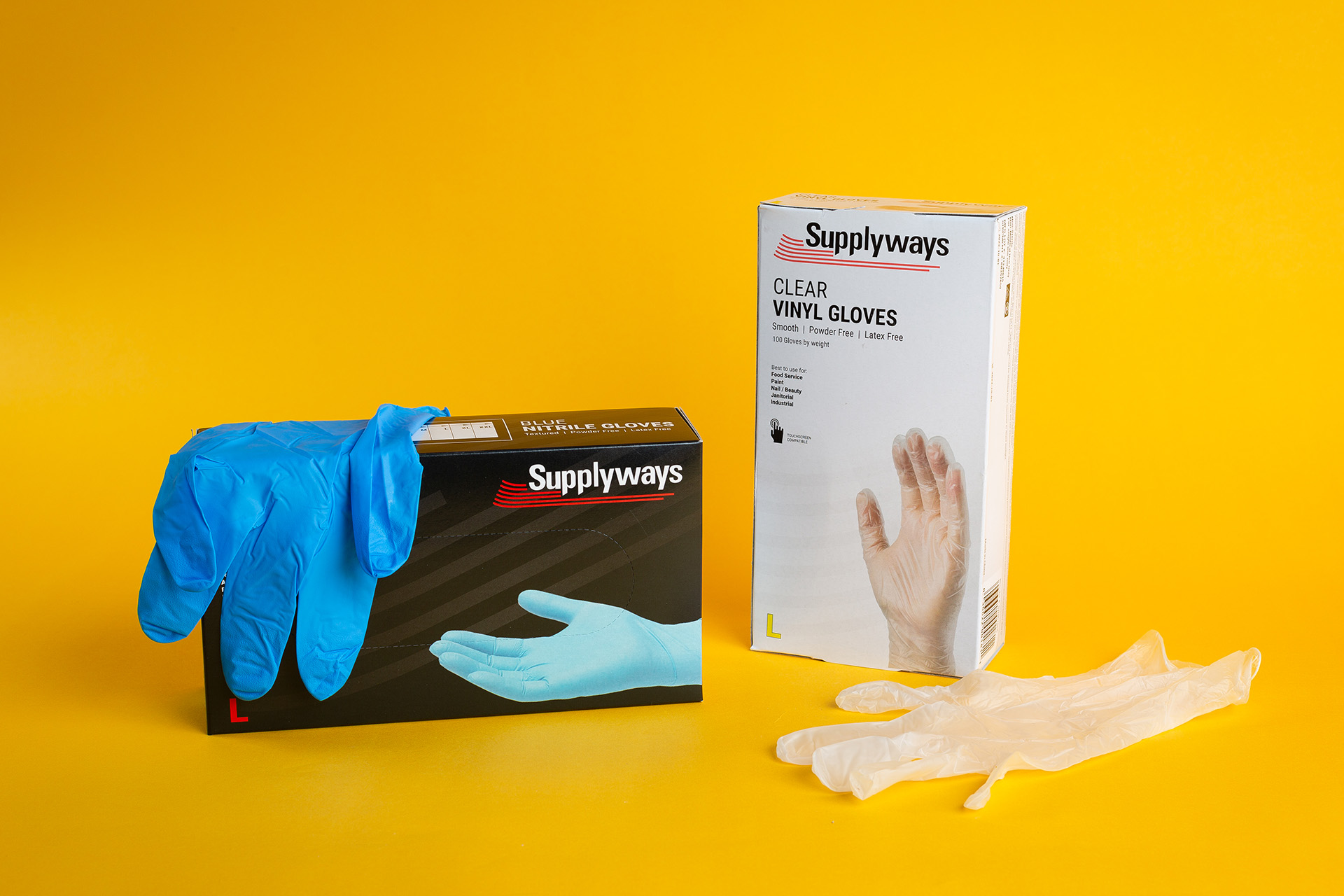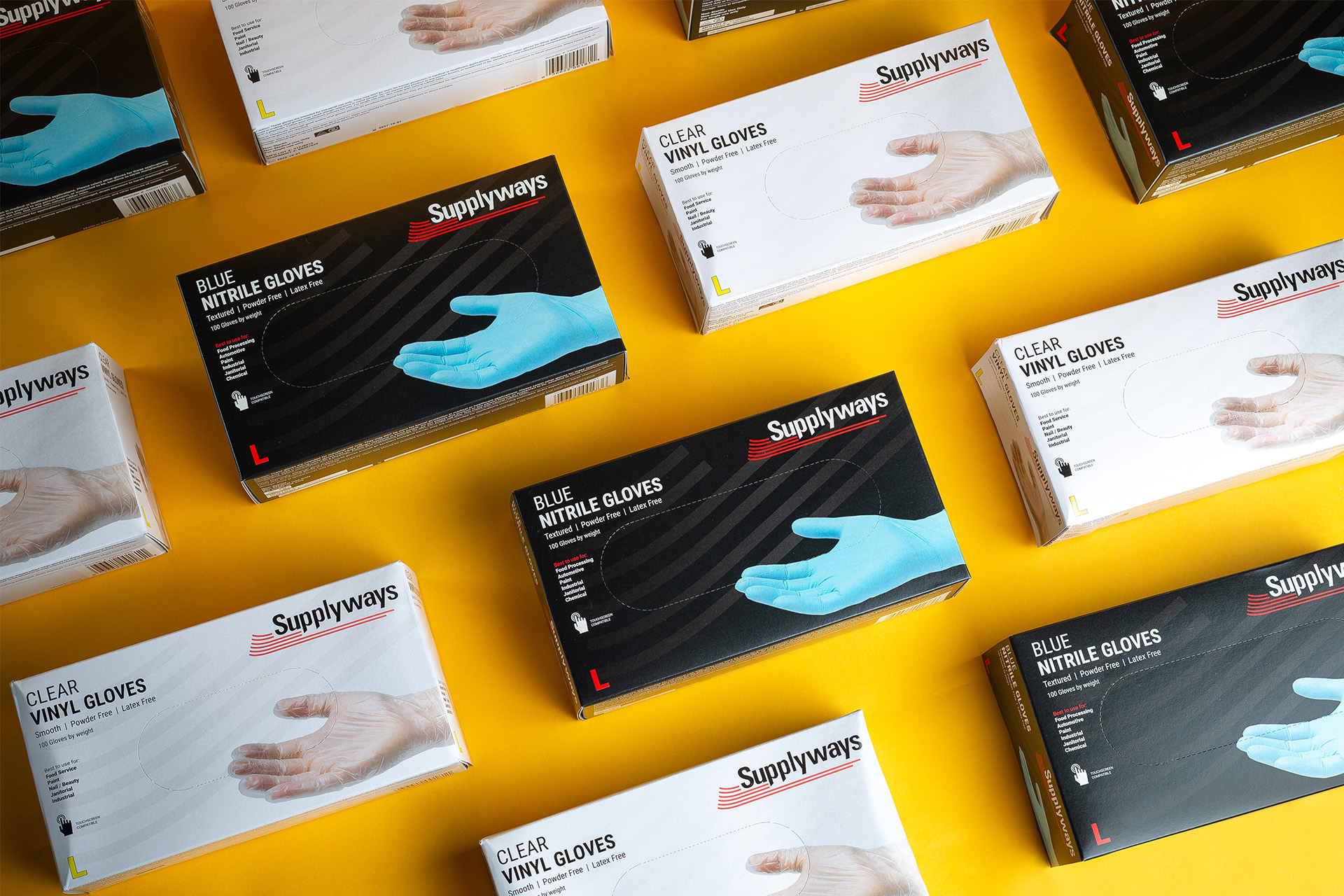Comparing Disposable Gloves – Measuring with Mils vs. Grams
How is a Disposable Glove Measured?
Disposable gloves have become an essential accessory across various industries. Whether you are in healthcare, food service, or manufacturing, disposable gloves offer protection, prevent the spread of contaminants, and help keep your hands clean while you work. When selecting the right gloves, it is not only important that you understand what type of glove to use but also to understand the measurements used to compare their thickness and quality. In this blog post, we will dive into the different ways to measure disposable gloves, things to keep in mind when comparing options and explore the different types to choose from.
Glove Measurements: Mils and Grams
In the glove industry, there are two ways to measure gloves, measuring by mils and measuring by grams. Measuring by mils is more commonly used by brands and what most consumers and end users will see in advertisements and documentation. Measuring by grams is often used by manufacturers in the production process.
Mil-based glove measurements measure the thickness of a glove (1 mil = 0.0254 mm or 0.001 in). Typically, this is measured in one of three areas: the fingertip, the palm, or the cuff/wrist. Depending on where the supplier chooses to measure their gloves will reflect the mil thickness. For instance, a nitrile glove measured at the fingertip may have a different measurement at the wrist/cuff. It is up to the glove supplier where they choose to measure the glove. If you are experiencing inconsistent performance between similar gloves by different brands, you might want to try measuring each glove by grams, which may lead you to a more accurate comparison. Gram-based glove measurements measure the overall weight of the glove (1 gram = 0.0352 oz).

The Three Different Areas to Measure a Glove in Mils
Judging the quality of a glove is not solely based on the thickness but on its performance and how well it meets your requirements. Some of the factors to consider when evaluating a glove’s performance and quality are durability (also referred to as barrier integrity), grip, touch sensitivity, fit, and dexterity.
Some of the Different Types of Disposable Gloves: How Are They Best Used?
- Polyethylene Gloves – These gloves are most commonly used for light task work that requires frequent changes, such as preparing food. These gloves have a loose-fitting design that makes them quick to put on and easy to remove. They are suitable for tasks that do not require high levels of precision or heavy-duty protection. Due to their limited resistance to tearing and punctures, poly gloves are not recommended for high-risk or heavy-duty tasks that involve sharp objects, aggressive chemicals, or potentially infectious materials.
- Synthetic (Vinyl) Gloves – Synthetic gloves are another type of general-purpose glove made from vinyl and are more durable than poly. Because they are more durable, they are fitted and made to be worn for extended amounts of time. While vinyl gloves provide a basic barrier against many common chemicals, they have limited resistance to more aggressive chemicals and solvents. It is essential to assess the specific chemical compatibility when choosing gloves for tasks involving potentially harmful substances.
- Nitrile Gloves – Nitrile gloves are more comfortable and more durable than vinyl or poly gloves. They fit snug to your hand, which makes it ideal for precision work. Due to their durability, these gloves also provide exceptional resistance to a wide range of chemicals, including oils, solvents, greases, and various hazardous substances.

Download the Supplyways Glove Spec Sheet
Learn more
Let us help you keep your hands clean and prevent the spread of contaminants. We offer a range of disposable gloves for you, and we can help you compare the different options and make sure you are getting the best value and quality for your business. For more information, contact your local WCP account manager or customer service. We’d be happy to set up a consultation to discuss the best glove and other facility supply products to meet the goals of your business. Give us a call today at (877) 398-3030.
Source: Ammex


